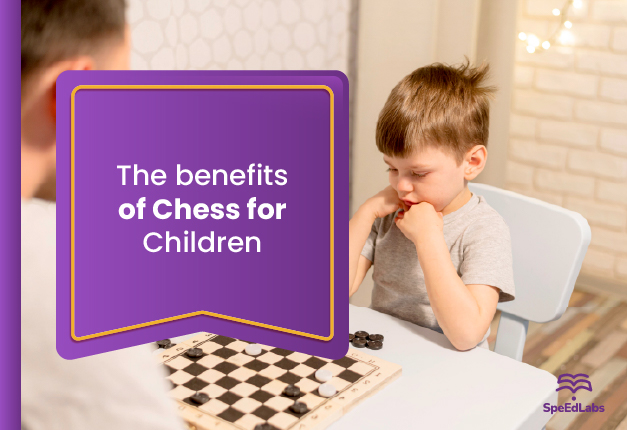Similar to physical exercise, the mind too needs exercise to be kept in top condition.
Chess is one of the best games to give a good thrust and exercise to your brain. Furthermore, playing chess is among the best techniques for youngsters (as well as adults) to develop their mental skills.
Chess is a game that is played all over the world, is enjoyable for players of all ages, and offers endless opportunities for players to get better.
So let us have a look at some interesting benefits of playing chess.
1) Promotes logical, analytical, and creative thinking
Both halves of the brain are used when playing chess.
The “if this, then that” situations that are essential to the game of chess demand that players consider all of the possible movements, countermoves, and results for every scenario.
Children who played chess instead of computer games scored 13 percentage points higher on the critical thinking test and 35 percentage points higher on the creative thinking test, according to research by Robert Ferguson, executive director of the American Chess School in Pennsylvania.
2) Improves mental focus and memory
Children who regularly play chess exhibit a considerable improvement in their visual memory and focus, according to studies. The fact that chess rewards focus is one of the game’s wonderful features. If you lose focus, you could lose the game or even a piece! You will probably succeed if you stay focused. A kid’s brain will find it enjoyable to keep concentrating while playing chess thanks to this component of the game!
3) Improves the ability to solve problems
Chess is a strategy game that requires thinking ahead, making plans and exercising foresight. One of the most crucial abilities for the game—and more importantly, for life—is the ability to consider shifting variables and create a strategy based on multiple scenarios.
4) Advances Reading Capabilities
Children must employ cognitive processes like decoding, analysis, thought, and comprehension when playing chess, which are all prerequisites for reading. According to studies, kids who play chess do 10 percentage points better on reading tests than their non-chess-playing peers.
5) Instils forward-thinking and planning skills
You need to be able to see numerous potential scenarios and outcomes to create a winning strategy in chess.
Making a plan is comparable to creating a map. To win at chess, you must develop the ability to think strategically and plan where to place your pieces to trap, capture, or block your opponent’s pieces.
The ultimate objective of the game is to capture your opponent’s king, but getting there requires perseverance and preparation. To position yourself for success, a lot of work must be done.
6) Redirects mental focus away from screens
Given how much time kids spend these days staring at screens, it should come as no surprise that this can affect how well they can focus and pay attention. Chess offers children a fun activity to enjoy away from screens while also improving their concentration, which is a powerful way to combat the negative effects of this digital age.
7) Links You to Other People
According to studies, social interactions between kids and adults, particularly with their parents, can have a significant positive effect on brain health in general. Chess encourages healthy competition, unlike video games or television, and fosters interpersonal relationships.
Teaching a child to play chess not only builds a healthy brain but also reinforces positive relationships and builds lasting memories.
One of the oldest games in existence, chess dates back more than 1500 years. Chess changed as it spread across the world to become the game we play today. As a result, this journey has united individuals from various backgrounds, age groups, and cultural contexts through a shared love of the game.
Chess is all about you; you devote the time to practising, competing in tournaments, and studying your mistakes to identify your weaknesses. With all of this effort, one gains confidence. You can develop resilience and self-confidence even by persevering through a challenging phase where your chess development reaches a plateau.
So, start playing chess now! Ask any of your friends or your family members to enjoy the game with you.
Also published on Medium.
